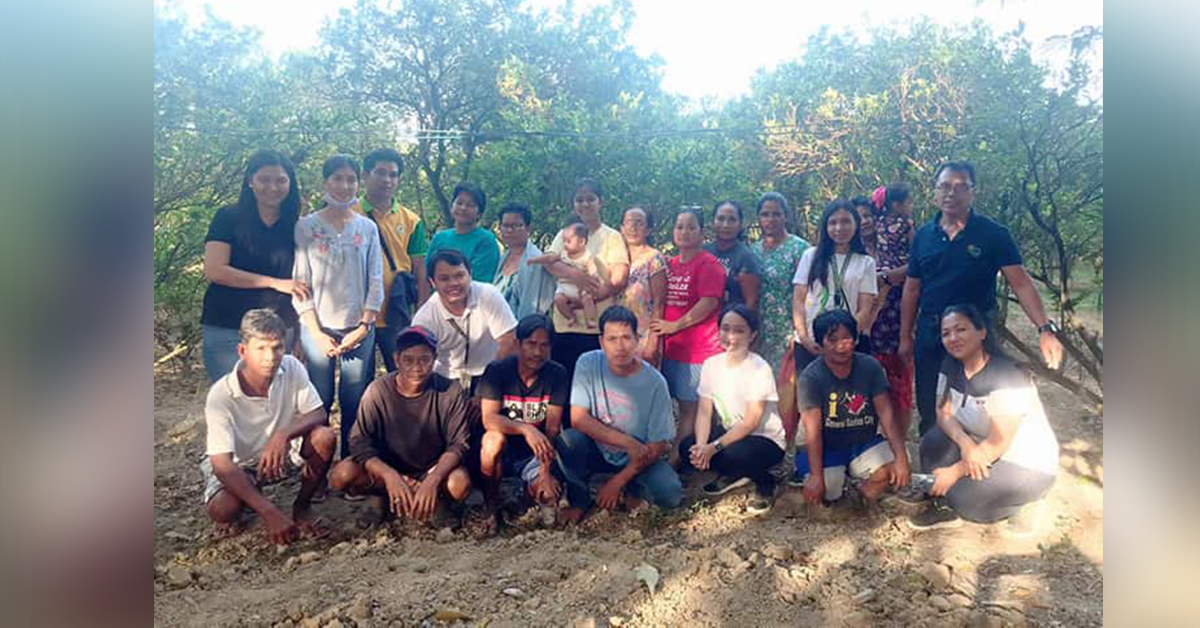“Mangarap tayong umasenso…hindi masamang mangarap. Kailangan lang buksan ang isip natin, puso natin, sa mga posibilidad sa buhay natin.” (Let’s dream about improving our lives. It’s not wrong to dream. We just need to open our minds, our hearts, to the possibilities in our lives).
Nanay Imee Patingo, the communication and documentation head of the Magsalisi Farmer Growers of Calamansi (MASIFAGCA) Pangkabuhayan, Inc., delivers this inspiring message with heartfelt conviction. As a farmer herself who used to struggle making ends meet, she and her fellow MASIFAGCA members are now living the dream of being successful agri-entrepreneurs.
This farmer group from Brgy. Magsalisi, Jaen, Nueva Ecija is a living testimony of God’s favor to the lowly and humble. Not only did they earn Philippine Good Agricultural Practices (PhilGAP) accreditations – individually in February 2020 and as a farmer group in 2021, they also emerged as the Bronze Awardee at the Jollibee Food Corporation’s Supplier Summit in 2021. Their triumph is a victory won by every Filipino farmer, proving that even the smallest players in business can make it!
Their journey with Tulay sa Pag-unlad, Inc. started in September 2016 when 27 calamansi farmers joined the TSPI Programang Pang-Agrikultura (TPP) under Paniqui branch. By God’s grace and through the new partnership between TSPI and the Jollibee Group Foundation (JGF), they were introduced to the Farmer Entrepreneurship Program (FEP) of JGF in 2018. The primary goal of the FEP is to develop small farmers into skilled agri-entrepreneurs who could potentially become trusted suppliers of the Jollibee Foods Corporation (JFC) and other institutional buyers.
On August 15, 2017 – just 11 months after the farmers joined TSPI – their group was organized as the Magsalisi Farmer Growers of Calamansi (MASIFAGCA) Pangkabuhayan, Inc. to meet FEP’s requirements. The program gave them access to grants, mentorship and different types of training. It also gave them the opportunity to negotiate and transact directly with potential buyers.
On top of these valuable opportunities, the program also taught them business concepts and skills that are critical to running their own agriculture business, such as preparing financial plans, management plans, and product supply plans (price and quantity bidding, and supply management). It also gave them the opportunity to visit other farms.
The FEP helped transform the MASIFAGCA members – most of whom are women – from being small farmers left at the mercy of the local traders who controlled the price of their produce to being empowered decision-makers in their agri-business.
The group made their successful first delivery to Jollibee Group last August 2018, and they haven’t stopped delivering since. Between 2019 and 2021, they completed a total of 54 deliveries to JFC, amounting to 31,750 kilograms (31.75 tons) of calamansi. Within this time period, they also completed 13 deliveries to another institutional buyer, one of the large condiments manufacturers in the Philippines.
The farmers indeed become more confident with such great accomplishment of being lined up along with big suppliers in delivering high-quality calamansi to institutional buyers. They were able to bounce back as a group when they experienced leadership crises several times. They overcame old practices and embraced new discipline in calamansi production and marketing to comply with the requirements of the buyers. Though they struggled at first, they continued to adopt an entrepreneurial mindset – from mere crop producers to business-oriented farmers.
This farmer group who dared to dream big and rely on God’s providence is truly blessed. During the pandemic, they were able to continue delivering to institutional buyers. They were even able to fully pay their loans. Their quality of life began to improve – they were able to send their children to school and to repair their houses. It is still a long way to go and the farmers need to continue learning and working for the sustainability of their agro-enterprise. They plan to engage more farmers in their village, sell other crops to institutional buyers and possibly engage in calamansi processing in the future. While they may have just begun, the MASIFAGCA farmers are certainly paving the way for a promising journey and leaving road marks of hope for other farmers to follow.

